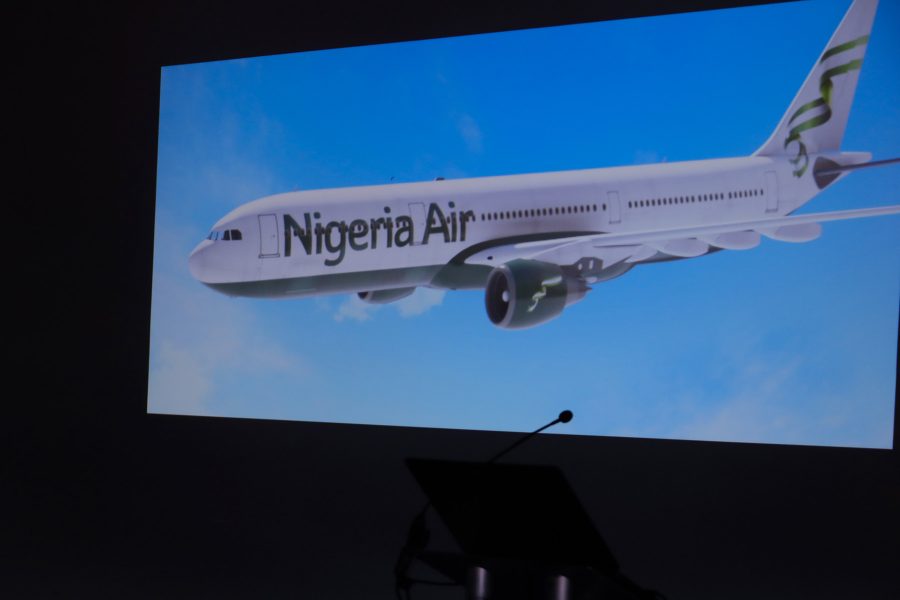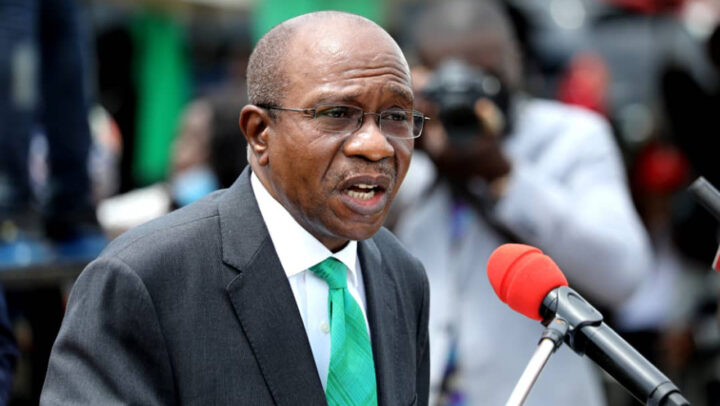BY ADENIRAN AKINBOYEWA
Due to many years of failed government projects and white elephants, Nigerians have become a cynical lot. I mean, can you blame them? Almost every business the government owns has become a tragic story. The country is replete with such examples like the dilapidated refineries, the abandoned Ajaokuta Steel Complex, the defunct Nigerian Airways, and a host of others.
So, expectedly, when the announcement was first made some four years ago that the country was planning to launch a national carrier almost 20 years after its predecessor, Nigerian Airways, went bust under a cloud of debt, mismanagement, and corruption, it was viewed with suspicion and was rejected outright by many industry experts.
The Nigerian aviation industry has seen cycles of airlines, with an average life span of 10 years, with only a few exceptions, this had been attributed to poor corporate governance as a result of their ownership structure, inadequate capital leading to the use of old aircraft which consume more fuel and have higher maintenance costs; and lack of internal capacity to ensure proper management. But this is definitely not another story of an insipid government project. Nigeria Air, if implemented as it is on paper, could turn out to be one of the best decisions ever taken by any administration in the history of Nigeria.
Advertisement
Transparency
The process of setting up the new carrier was very much transparent. Previous attempts to establish a flag or national carrier in Nigeria had thrown up companies or arrangements that could not stand the test of time, a very recent example was the failed Virgin Nigeria, which was majority owned by Virgin Atlantic and set up to complement its airline rather than in the best interest of the Nigerian aviation industry and Nigeria.
But Nigeria Air is not like Virgin Nigeria. According to the federal ministry of aviation, it commenced the implementation of an aviation roadmap that was approved by President Muhammadu Buhari in 2016 after an extensive appraisal of the aviation industry and interaction with key stakeholders in the industry.
Advertisement
The ministry thereafter embarked on the process of seeking reputable international and local investors to partner with the federal government in the concession of airport terminals, the establishment of a national carrier, Maintenance Repair and Overhaul Centre, Aviation Leasing Company (ALC), Agro Allied Cargo Terminals and Aerotropolis in line with the ICRC National Policy on Public Private Partnership (NP4).
This culminated in the emergence of preferred bidders for the MRO; AJW Consortium, ALC; AJW Leasing, and Ethiopian Airlines Consortium for the national carrier. The concession of airports, the development of agro-allied cargo terminals, and the aerotropolis are at an advanced stage of the procurement process and should be concluded soon. Advertorials were placed in both local and international papers and the RFP was issued to interested bidders in June 2022, a number of local, regional, and international airlines and investors signified interest in the project, this was evidenced by the number of companies that downloaded the RFP and participated in the bidder’s conference and at the end of the bidding process only the Ethiopian Airlines Consortium submitted a comprehensive bid which was subsequently evaluated and they were declared the preferred bidder.
This must have been a result of many factors key among them the requirements of the RFQ and RFP, which required bidders to have both the technical and financial capacity to run the airline, specifically requiring an international airline with a minimum of 10 years experience.
At the end of the evaluation, the Ethiopian Airlines consortium emerged as the preferred bidder, this is the first time in Nigeria’s history that a proper bid process will be done to establish a flag or national carrier. This was a culmination of six years of hard work by the ministry of aviation, The Infrastructure Concession Regulatory Commission (ICRC), and the transaction adviser.
Advertisement
The new setup
The Ethiopian Airlines Consortium comprises Ethiopian Airlines Group, MRS Oil and Gas, and Skyway Aviation Handling Company Plc (SAHCO) will be the strategic partner that will operate Nigeria Air, the proposed Nigerian flag carrier. The preferred bidder’s consortium includes companies with wide and varied experience in airline operations including flight operations, maintenance, aircraft fuelling, and aircraft handling amongst others, which will ensure the airline is successfully run. Not only do they have the technical experience to run a successful airline they have also started engaging DFIs and international investors. The foreign partner will own a maximum of 49%, Nigerian investors 46%, and the federal government of Nigeria 5%, as a minority shareholder. The government will only provide guidance and ensure the interest of Nigeria and Nigerians are protected and will not interfere with the operations of the airline.
According to the strategic business plan submitted by the consortium which would be annexed to the agreement with the government and made mandatory for them to comply with, they intend to use six Boeing 737-800 and two Boeing 787 in Year 1 to operate to 17 destinations; 12 domestic, three African and two international routes and by Year 5, 15 Boeing 737-800 and eight Boeing 787 to 28 destinations; 15 domestic, five African and eight international routes. They forecast to carry 2 million passengers in Year 1 and 5.5 million by Year 5 earning a revenue of $280 million in Year 1 and $1 billion by Year 5.
Ethiopian Airlines (Ethiopian) is the largest and most profitable airline in Africa. Over the past seven decades, Ethiopian has been a pioneer of African aviation by introducing the first jet service in the continent in 1962, the first African B787 Dreamliner in 2012, and is leading the way again by flying the first African A350 XWB. Today, it has a fleet of over 135 modern aircraft. It is amongst the world’s largest airlines by the number of destinations and flies to more than 120 international and domestic destinations including more than 50 in Africa such as Lagos and Abuja in Nigeria. In the last financial year, Ethiopian Airlines declared a profit of almost $1 billion, the second most profitable airline in the world.
Advertisement
Ethiopian has won numerous global awards such as the African Airline of the Year, Best Airline Staff in Africa Award, and Best Cargo Airline of the Year from Africa. Its long-term strategy includes co-investing in African airlines, in this regard, over the past years it has made investments in several established airlines including in Togo and Malawi and a more recent one in DRC.
Regarding Nigeria, Ethiopia’s strategy is to significantly strengthen its commitment to Nigeria beyond the four destinations it currently serves, already more than any other international airline. Ethiopian plans to make a significant co-investment in Nigeria Air, the new flag carrier to make Nigeria Air a world-class airline taking into consideration that Nigeria is the largest economy in Africa and is the continent’s most populous country.
Advertisement
MRS Oil and Gas Limited is a subsidiary of MRS Holdings Limited a pan-African conglomerate of companies diversified in oil products and services. It is one of the largest providers of commercial aviation fuel services in West Africa coupled with years of expertise to provide safe, high-quality, reliable service while maintaining standards. MRS Aviation currently averages 150 million liters of Jet A-1 annually and aspires to make 190 million litres annually through its depots in Lagos, Abuja, Kano, Yaounde, Doula, Cotonou, and Lome.
Skyway Aviation Handling Company PLC (SAHCO) is one of the subsidiaries of Sifax Group, a diversified group with interests in maritime, aviation, haulage and logistics, oil and gas, and hospitality. Amongst others, they operate the port and cargo handling terminal in Tincan Port, Apapa, and own the Marriott Hotel in Ikeja Lagos. SAHCO’s services are tailored towards satisfying the needs and expectations of its growing list of clientele. Striving to be the reference point where the efficiency of a successful flight is born. SAHCO handles international scheduled and ad-hoc operators, and domestic airlines operating in and into the operational regions.
Advertisement
The Airline Operators of Nigeria (AON) recently objected to the choice of Ethiopian Airlines as the partner to Nigeria Air and they also want to be shareholders in Nigeria Air, this, however, is not tenable because if any member of AON partners with any international airline and sells 49% shareholding to the airline, would the other members object or would the government have a right to object, the answer is no. Also on shareholding, ownership of a company is by people of like minds who have done due diligence on one another to ensure they do not have legal impediments in any jurisdiction that can taint the business they are in together, how does the government force another shareholder on the current consortium, this would amount to dictating terms to them and the government is not in a position to do so.
To ensure the airline starts off as soon as possible, the ministry appointed an interim management and board for the airline led by an experienced aviator and manager, Dapo Olumide, in February 2022 to commence the process of acquiring all the required licenses for the airline, they have secured the air transport license for the airline in June 2022 and are close to concluding the air operators certificate process. In order to conclude the AOC process and commence operations as soon as possible, the ministry sought the approval of the FEC to wet lease aircraft which was granted in July 2022, however, ET has committed to providing the aircraft to complete the AOC process as part of their contribution and as such the ministry will no longer be leasing the wet-leased aircraft, saving the federal government the money they would have expended on the wet lease.
Advertisement
Another major benefit is that Nigeria would be saving its scarce FX. Recently, the media space was awash with news of how some foreign airlines almost brought Nigeria’s aviation sector to its knees, threatening to suspend their services over the delay by the Central Bank of Nigeria to release the over $450 million which they could repatriate to their home countries.
If more Nigerians patronise Nigeria Air over time, the demand for FX would drop. This is because a lot of the component and ancillary services would be done in naira. The cost of fuel would be at least 65% naira. The Maintenance Repair and Overhaul Centre would be paid mainly for in naira. The manpower would also be in naira along with other services like catering, local transport, and hotel. The only aspect that would require 100% FX payment would be the aircraft lease.
For Nigeria, this is also about creating jobs with a reliable alternative to the foreign carriers currently operating into and out of Nigeria, stabilising the Nigerian Aviation industry, and strengthening the domestic flight operations with the existing operators, this is about creating competition and reducing fares, this is about restoring national pride and putting Nigeria on the world map as a tourist destination that has its own Airline whose brand will create an identity for Nigeria.
Akinboyewa, a mechanical engineer, writes from Lagos
Views expressed by contributors are strictly personal and not of TheCable.
Add a comment






